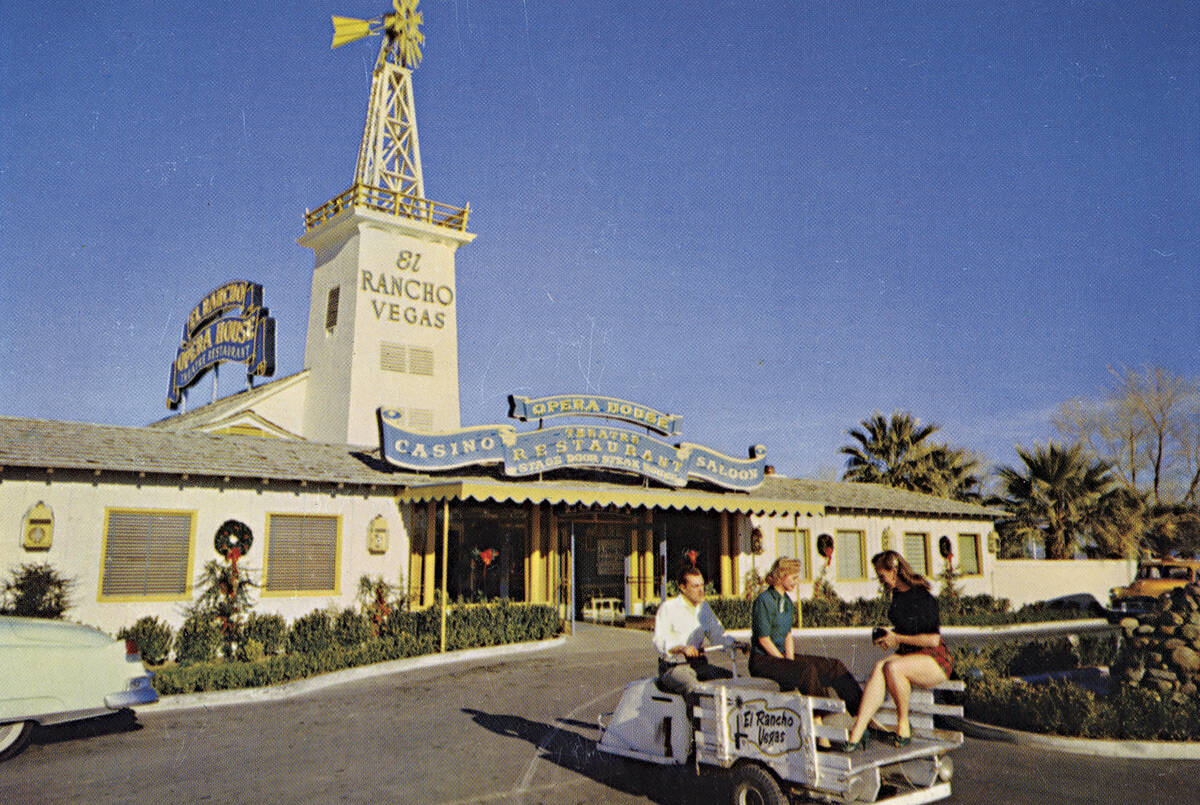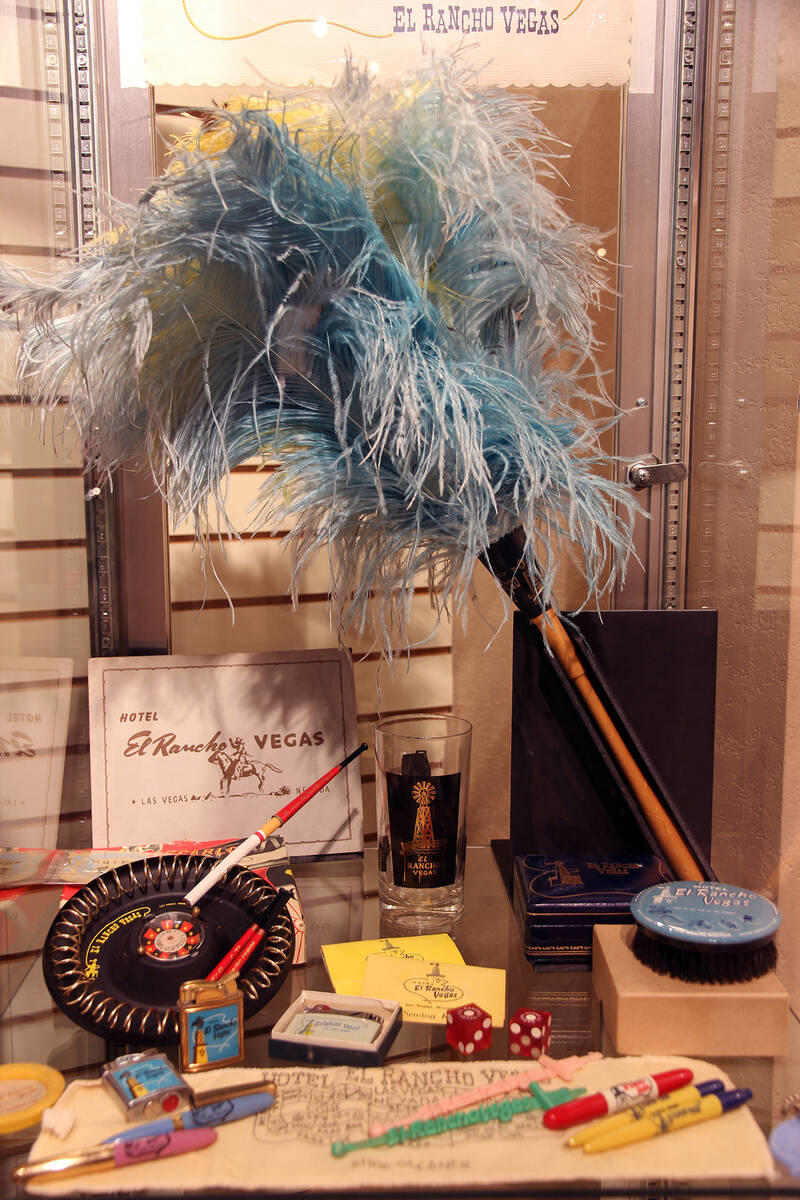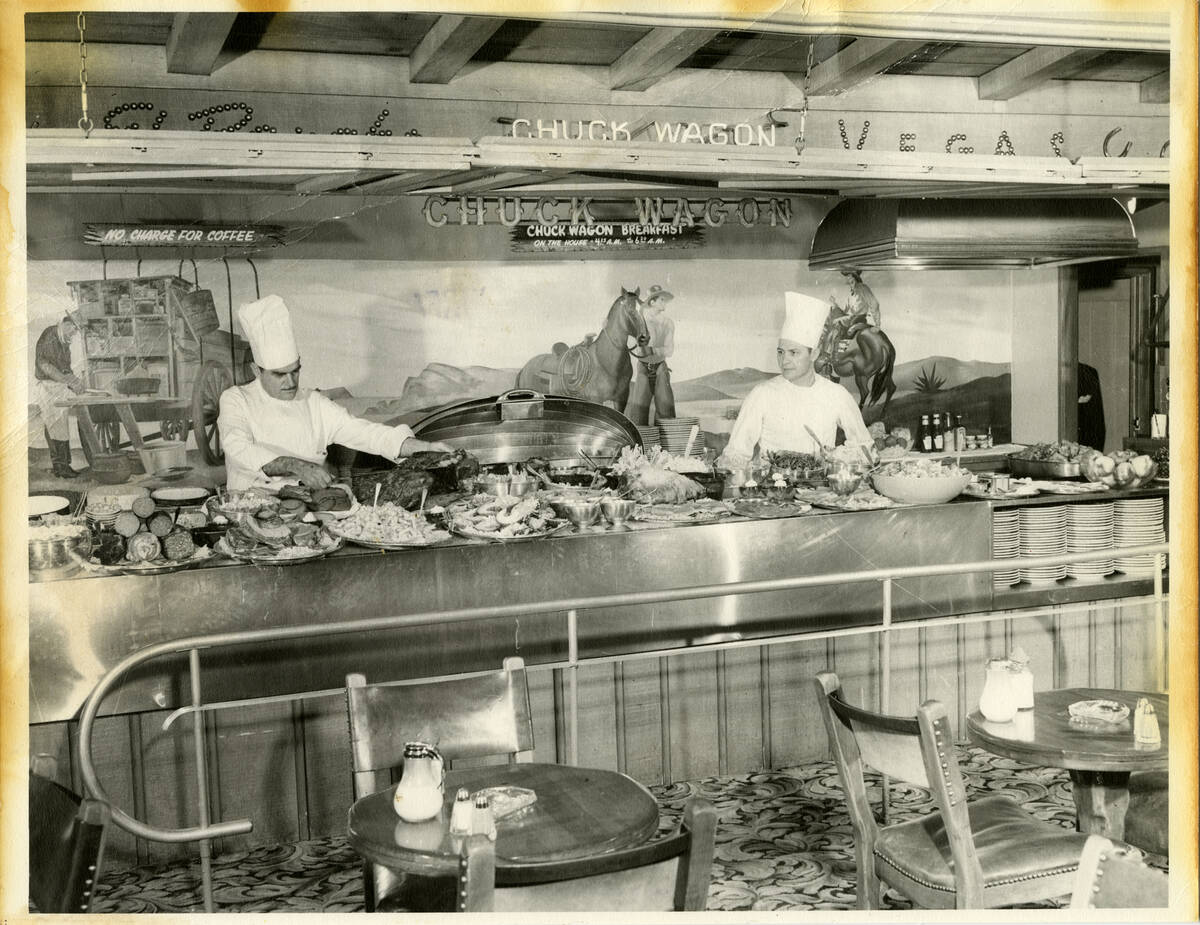The Strip’s story began with this Western-themed casino opening
The story of the Las Vegas Strip started more than 80 years ago this week on a ranch.
More specifically, a Western-themed resort called El Rancho Vegas.
The first hotel-casino on Las Vegas Boulevard opened April 3, 1941, at what is now the Las Vegas Festival Grounds. At the time, travelers, most often from California, drove to downtown Las Vegas through empty desert on Highway 91. There were some small casinos, but none was an integrated hotel concept.
“The original El Rancho Vegas was a pioneer,” Michael Green, a historian at UNLV, said. “It was the beachhead, or the acorn from which the mighty oak grew. Now, it’s been more than 60 years since it was standing there and it’s still a historic spot.”
California businessman Thomas Hull started El Rancho Vegas as an extension of his motor hotel brand in Southern California. Las Vegas officials asked him to consider building near Charleston Boulevard and Maryland Parkway, but Hull wanted to be outside of city boundaries to avoid city taxes and other regulations.
Original plans for the resort didn’t include a casino, but local friends persuaded Hull to add one as a moneymaker for the roughly 65-room property. Other amenities included a gas station, restaurants, retail shops, a swimming pool, horseback riding and lounge shows with big entertainers, according to Geoff Schumacher’s book “Sun, Sin and Suburbia.”
“From the start, Strip resorts sought to satisfy all their customers’ needs and desires,” he wrote.
Another first at the property was the introduction of an all-you-can-eat midnight buffet. The Chuck Wagon was said to have been conceived because publicist Herb McDonald brought out some sandwich fixings while working a late bar, peaking the interest of casino patrons.
The casino changed ownership several times in its early years — including one of Las Vegas’ most famous mobsters.
“Within a couple of years, an entrepreneur named Benjamin (Bugsy) Siegel offered to buy the property,” Green said. “Hull said, ‘The people of Las Vegas have been too good to me to sell to the likes of Siegel.’ Then he eventually sold to a couple of guys connected with the Purple Gang out of Detroit, so I don’t know that Hull necessarily knew who was doing what there.”
Beldon Katleman became the resort’s proprietor in 1950 and ran it through the decade, expanding its size and changing its decor. On June 17, 1960, the main building burnt down in an early morning fire that caused millions of dollars in damages and destroyed more than $427,000 in the vault, Las Vegas Review-Journal archives show.
The cottages surrounding the building were saved, but the property struggled as a nongaming hotel in the following years. Another Las Vegas mogul, Howard Hughes, bought the land from Katleman in June 1970 for $8.5 million.
McKenna Ross is a corps member with Report for America, a national service program that places journalists into local newsrooms. Contact her at mross@reviewjournal.com. Follow @mckenna_ross_ on X.
























